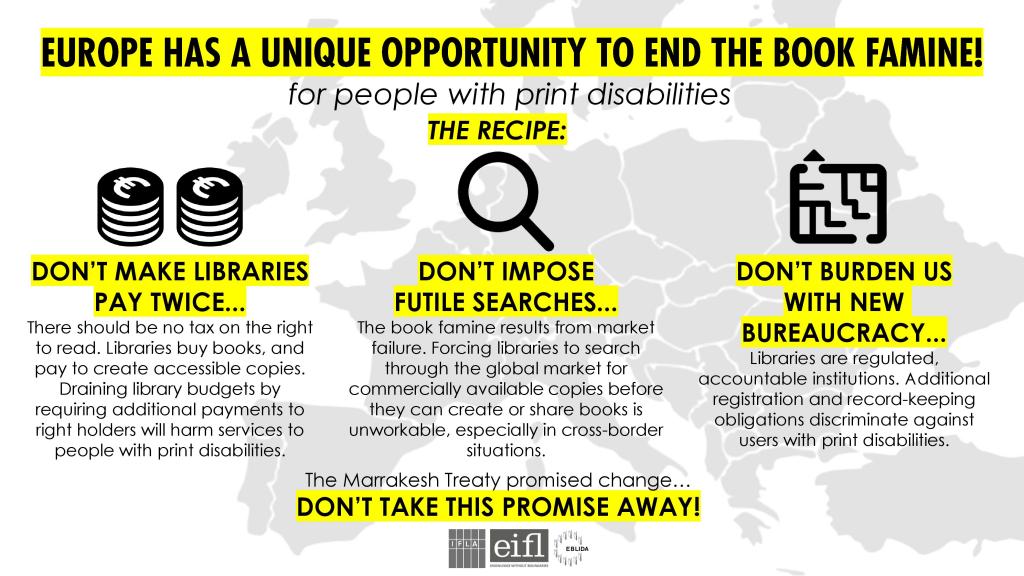Marrakesh Ratification in the European Union Has a Sting in the Tail
15 May 2017

Progress towards ratification of the Marrakesh Treaty in the European Union (EU) has the potential to deliver significantly wider access to knowledge for people with print disabilities, both in Europe and around the world. But to achieve this, national legislation will need to avoid introducing unnecessary 'compensation' provisions which will only harm the institutions, such as libraries and charities, which are working to help.
Following the announcement of a deal in negotiations between the European Parliament (directly elected by EU citizens), the Council of Ministers (representing Member States) and the European Commission, IFLA and EBLIDA have released a joint statement.
This welcomes progress towards making the provisions of the Marrakesh Treaty a reality, in particular the right to make and share accessible format copies of books. However, it strongly regrets that the text leaves open the possibility for Member States to force libraries and charities to bear additional, unjustified costs in order to achieve their public interest objectives. It calls on individual governments, in transposing the EU measures into national law, to respect the original objective of the Treaty – to end the book famine
IFLA President Donna Scheeder said: "The signing of the Marrakesh Treaty proved that it was possible to break down the legal barriers to access to information for some of the most vulnerable in our societies. While progress in the European Union is welcome, it is deplorable that these legal barriers may now be replaced by financial ones. I call on national governments, in transposing the new rules, to do the right thing."
Read the full statement